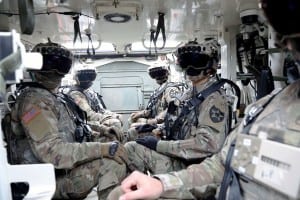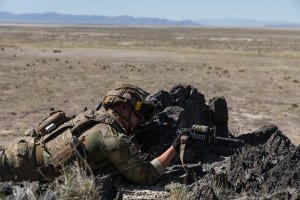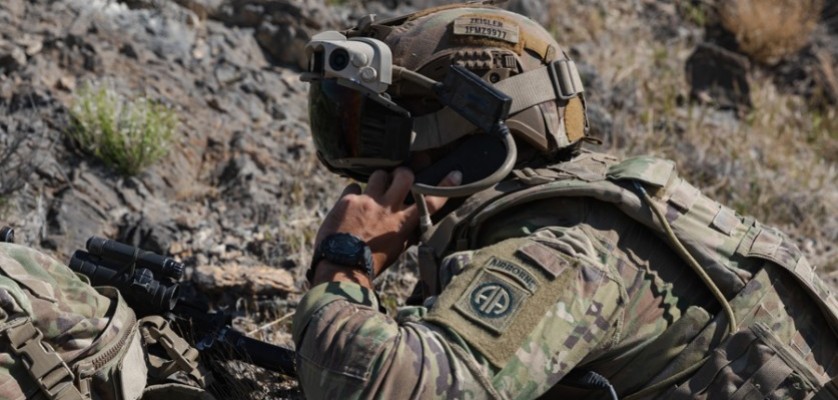Army researchers are expanding the reach of the high-tech Integrated Visual Augmentation System to deliver capabilities to Soldiers onboard aircraft.
IVAS integrates next-generation situational awareness tools and high-resolution simulations to enable Soldier sensing, decision making, target acquisition and target engagement. The device provides Soldiers with a single platform to fight, rehearse and train.

During the research and testing phases, the Army initially focused on bringing the technology to dismounted Soldiers. During the next step, scientists and engineers developed a capability for Soldiers to maintain situational awareness using IVAS during transport in ground combat vehicles such as the Bradley and Stryker.
Now, Army Futures Command and Project Manager IVAS are testing the system to deliver the technology for aircrews and paratroopers in Black Hawk and Chinook helicopters.
“The Army is investing in resources to broaden the emerging capabilities of IVAS to improve effectiveness and safety of airborne Soldiers en route to their mission,” said Dr. Navin Mathur, IVAS platform integration project engineer with the Command, Control, Communications, Computers, Cyber, Intelligence, Surveillance and Reconnaissance Center a component of AFC’s Combat Capabilities Development Command.
The first aircraft integration operational test with paratroopers using IVAS occurred in May at Experimentation Demonstration Gateway Event 21 ó a precursor to Project Convergence 21 ó with the 82nd Airborne Division aboard two Black Hawks. The same Soldiers finished testing IVAS weeks earlier during Soldier Touch Point 4 at Fort Bragg and incorporated what they learned in preparation for EDGE 21.

They received real-time video feeds to their IVAS headsets, from a camera mounted to the bottom of helicopters, while flying to the objective site. By pushing a button on the headset, they could toggle among the screens, making the images larger or smaller. Two squad leaders in separate Black Hawks also coordinated a mid-flight change of mission plans using the system.
Research is now focused on providing video feeds from Air-Launched Effects (ALE), small unmanned aerial vehicles released in flight from helicopters, to paratroopers and aircrew wearing IVAS. Soldiers could also use the headsets to control ALE instead of carrying a tablet.
“During the development phases for these current and future ground and air platforms, we’re focused foremost on the putting together the user experience,” Mathur said. “The team is getting their feedback during exercises like EDGE and making quick upgrades. We’re continually refining designs to meet their needs.”












